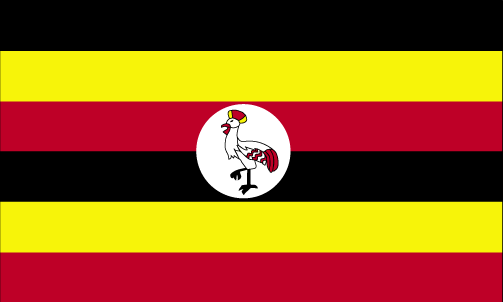Uganda Hikes Mobile Taxes in Wake of Corruption Scandal

Ugandan Finance Minister Maria Kiwanuka has announced plans for a 10 percent tax on cash transfers from mobile phones as well as a tax on incoming international phone calls.This draconian tax should come as no surprise from a government languishing at number 79 on the Heritage Foundation economic freedom index.
The tax comes in response to a $214 million black hole in the Ugandan annual budget. That hole opened up after several countries suspended payments to the beleaguered African nation in response to allegations of corruption. Uganda's Auditor General reported in October 2012 that money intended for areas devastated by conflict had been stolen. Among those caught up in the scandal are Prime Minister Amama Mbabz, whose office was transferring millions of dollars of foreign aid to private accounts.
The proposed tax and poor governance structures have sparked anger in the business community.
From the BBC:
"It's very unfortunate that Ugandans are being squeezed both ways," Simon Mpagi, a mobile phone money transfer agent, told the Reuters news agency from his retail shop in Kampala."They steal our taxes and donor money… leaving public services to near-collapse and now when donors get angry and cut them off, then they come to us and punish us again by raising taxes to grab even the little income we struggle to make."
Mobile money has proved a remarkable growth area for much of Africa, rapidly expanding opportunities for entrepreneurship and business creation in recent years. Uganda has seen a dramatic increase in the number of people using mobile money. In 2011 the number was 2.9 million. By the end of 2012 the figure was close 9 million according to Kenyan newspaper The East African.
The record of foreign aid over recent years has been less than stellar. In 2010 the Ethiopian government, a recipient of $3.5 billion of U.S. aid was caught using aid money for political repression.
Jasson Urbach, a primary field researcher for Enterprise Africa and Free Market Foundation of South Africa, has written in Economic Affairs about how mobile phones have been a key part of economic development in Botswana.
'Mobile banking has brought the safety and security of banks to places located far from the halls and walls of the traditional commercial bank providing previously unbanked populations the conveniences of modern-day banking'
'The result of the rapid diffusion of this technology is that a significant number of jobs and enterprises have been created, which has enabled many Africans to escape the so-called poverty trap'.
The Ugandan government hopes that the tax will raise $12 million and the levy on incoming international calls will raise $16.5 million. This would account for a mere 13 percent of Uganda's current budget gap. For a relatively small amount of the total budget shortfall the Ugandan government threatens to significantly hamper new business creation, severely limiting the appeal of one of the key innovations transforming the lives of its citizens.

Show Comments (1)